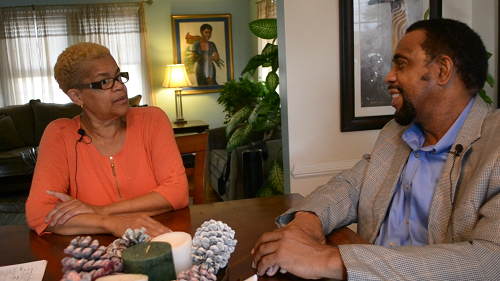National Recovery Month & foster care –
By Shay Stinson

The court system is not a place to punish those that suffer with drug or alcohol addiction. (Pic Kelly Sikkema)
September is National Recovery Month, promoting treatment and health services to enable those with addiction diseases to live healthier lives. Drug-addicted parents and guardians is now one of the leading causes of children entering foster care. Although children enter the foster care system for many reasons, like abuse, neglect or sexual assault, according to AddictionCenter.org, “36% of foster care entrances were due to parental involvement in substance abuse in 2017.” That percentage is growing. “In 2000, drug addiction was the cause of only about 15% of foster care entrances.” Despite these statistics, and in most cases, reunification of the child with their family is the goal child welfare services work toward.
The path to reunification may be more difficult when there is addiction involved. Recovery from drug and alcohol addiction is a personal battle and is never an identical journey. Therefore, treatment cannot be the same in every situation. For this reason, the length and outcome of foster care become a fluid situation based on the success of the parent’s recovery timeline.
Once a child has been removed from a home or from their biological family due to addiction, the work has yet to begin. The parent(s) must make the decision to start or continue their recovery process in order to be reunified with their child(ren). They cannot be forced to “get clean” from drugs or alcohol. This is a personal decision and sometimes it is not easily made.
Addiction is a brain disease. The American Academy of Psychiatry defines addiction as a complex, compulsive disorder. Addiction won’t stop with a court order or because someone removed a child from someone’s care. Addictions take over one’s life and their mindsets and can leave a person with little to no control over their own actions. Therefore, a person that is addicted to any substances needs professional help and should not tackle recovery alone.

Fighting addiction requires a healthy support system with people who love and care about your wellness. (Pic Briana Tozour)
How Can a Foster Parent Help?
As a foster parent, you may feel an extra burden from the care needs of a biological parent who is in recovery or an active addict. The truth is the process is tough, and it takes teamwork. The road to recovery never ends, as it is a goal that must be constantly supported and guarded. There are a few ways a foster parent can be supportive of a biological parent that is on a journey of recovery from addiction. These tips are fluid and may change depending on the person’s journey.
- Be encouraging and avoid judgment.
- Communicate honestly and openly using respect as guidance.
- Learn about local resources like the 12 Steps programs in your area so that you may refer to them when or if needed.
- Keep a positive outlook
- Use techniques like journaling or family activities that might encourage the biological parent in their journey to recovery.
- Keep a team approach to sobriety and do not take on the responsibility of sobriety for someone else.
- Set and keep boundaries.
- Use respect and confidentiality when addressing sensitive information.
The 12 Steps Program was designed for people going through the recovery process, using a faith–based system to achieve success in drug and alcohol addiction recovery. Its roots hail from a group of supportive friends.
The program has been widely used and embraced in the recovery community and is one of the first resources given to a person seeking to recover from addiction(s). The 12 Steps Program has been adapted to include a non–religious version for those who are seeking a more self–reliant system and methods-based approach to recovery.
Knowing that there are programs like the 12 Steps Programs with meetings and community bases that will collectively support a person in recovery is a way to see hope in a hopeless situation. A foster parent’s encouragement is sometimes the encouraging message of endurance that a biological parent may need, much like the message of the program.

Families can triumph over addiction with love and support. | (left to right) Jamiah and Debra Scott. | Photo by Intisar Seraaj.
The outcome of a recovery journey from addiction is unpredictable. What can be predictable is the love and support that a foster or adoptive parent has to offer a child in need, like Seraaj Family Homes, Inc. clients Debora Scott and Jamiah. Jamiah was born to drug–addicted parents and was diagnosed early on with a plethora of medical issues. Subsequently adopted and re-entered into foster care, Jamiah found her forever family with Scott. Click here to read their story.
As a foster parent, realistically, this recovery “mountain is not yours to climb, nor is it your battle to fight.” But as a partner in parenting, this journey needs all the help we can provide. Please, if the biological parents of your foster children are grappling with addictions, have compassion and be patient. You may be the hope that is needed in the fight for their lives and their children’s lives as well.

Susan Johnson (left) is a foster parent for Seraaj Family Homes, Inc. (SFH) in Baltimore, Maryland. She’s been with the company since 2014. She spoke with CEO Abdul Seraaj (right) about a multitude of things, including her adoption of her son who was born addicted to drugs. Watch a short clip about it via the link below. | Photo by Intisar Seraaj.
Susan Johnson Speaks About Adopting a Baby Born Drug-Addicted

